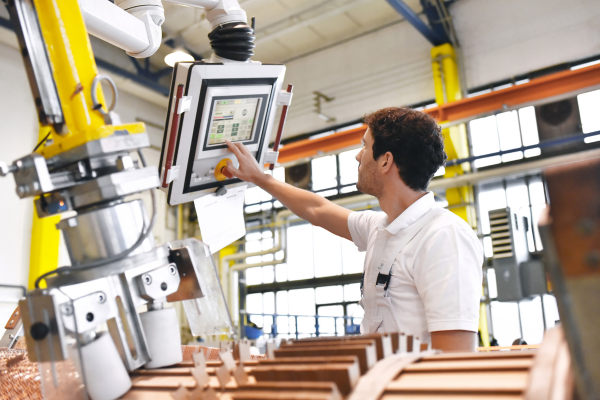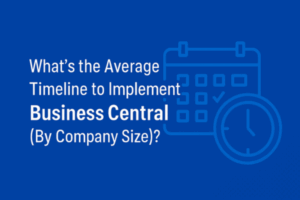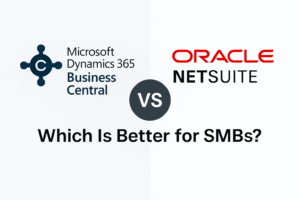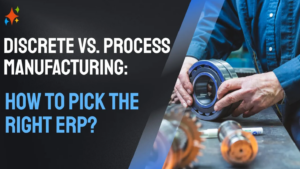Why Manufacturing Style Matters
Before we sort out which ERP might suit you, it’s good to nail down what discrete and process manufacturing actually mean. They sound fancy, but in reality, they’re just different ways of making products.
Discrete Manufacturing
Discrete manufacturing involves making items that you can count, touch one by one, and even take apart into separate pieces. Think of things like cars, mobile phones, furniture, or toys. These products are typically assembled from a list of parts, often called a Bill of Materials (BOM). If you need 100 chairs, you gather up your wood, screws, and fabric, then put them all together until you have exactly 100 chairs. Each chair can be tracked by a serial number, which helps you keep an eye on every single unit.
Process Manufacturing
Process manufacturing deals with formulas and recipes. You combine raw materials or ingredients in a way that can’t easily be undone. You can’t just take chocolate cake batter and turn it back into separate eggs, flour, and sugar once they’ve been fully mixed and baked. Common examples include food, beverages, chemicals, pharmaceuticals, and cosmetics.
Why This Distinction Is Huge
Now, if you’re the CFO, owner, or CEO of a discrete manufacturing company, you might be tracking specific parts and managing lots of assembly lines. If you’re in process manufacturing, you’re focused on recipes, batch production, and possibly strict requirements for safety or labeling. An ERP system built for discrete manufacturing might have strong tools for inventory tracking at the item level, while an ERP for process manufacturing usually has features for managing batches or formulas.
Real-Life Fictional Example: Discrete vs. Process
Let’s imagine two fictional businesses (just for fun, to highlight the point—these aren’t real stories).
- Molly’s Motor Works
Molly runs a small but busy garage that builds custom electric scooters. Every scooter is different because clients can choose special parts. Molly needs to know when parts arrive, how many are in stock, and which parts go into each scooter. Sometimes a client orders a specific battery or a unique color scheme. Molly’s biggest challenge is making sure she doesn’t lose track of a single nut or bolt. She needs an ERP that helps her easily handle orders, track individual components, and run final quality checks on each scooter leaving her facility. - Sam’s Sweet Syrups
Sam, on the other hand, makes dessert syrups. He blends a certain amount of sugar, flavor extract, and preservatives to create yummy toppings for ice cream shops. Once Sam’s ingredients are mixed into a big tank and heated, there’s no going back. The biggest headache for Sam is making sure every batch is consistent, meets health regulations, and is labeled properly. His ERP needs to manage the recipe precisely, track batch numbers, and handle any recall or safety issues fast in case there’s a problem with a certain batch.
Molly’s shop is a classic example of discrete manufacturing, and Sam’s is clearly process manufacturing. They both might look for the same big-ticket item: an ERP system. But each business has unique needs that call for different features.
Key Differences to Watch For
1. Inventory Management
- Discrete: Tracks parts and materials as separate items. You might see the exact quantity of each screw or motor in stock.
- Process: Monitors raw materials in bulk, often by weight or volume, and keeps track of batch production.
2. Bill of Materials vs. Recipe
- Discrete: Relies on a Bill of Materials that lists all the nuts, bolts, and parts.
- Process: Uses recipes or formulas to mix ingredients with specific measurements.
3. Production Tracking
- Discrete: Focuses on assembling parts into final products. You might track each item with a serial number.
- Process: Focuses on mixing raw materials into batches and tracking them by lot numbers.
4. Quality and Compliance
- Discrete: Inspections might center on assembly errors or faulty parts.
- Process: Quality checks revolve around health and safety standards, or chemical compositions.
5. Industry Regulations
- Discrete: Depends on the industry but might involve product safety checks or warranties.
- Process: Often involves government agencies or strict guidelines for handling and labeling, especially in food, chemicals, or pharmaceuticals.
Choosing the Right ERP Features
If you’re trying to decide on an ERP system, here are some must-check features for each manufacturing style.
Discrete Manufacturing ERP
- Detailed Parts Management: You want to know exactly where each part is, which product it goes into, and how many are left in stock.
- Assembly Management: Helps you structure the assembly line and manage any sub-assemblies.
- Serial Number Tracking: Let’s you pinpoint when something was made and trace any future issues back to a specific group of parts.
Process Manufacturing ERP
- Recipe and Formula Management: You need to handle different batch sizes while keeping the right ratio of ingredients.
- Lot Tracking: If there’s ever a recall, you can figure out which batch is affected and pull it off the shelves.
- Regulatory Compliance Management: Helps you keep up with health, safety, or environmental rules.
Helpful Statistics
To give you a sense of where the manufacturing world is heading, here are some stats and references you might find useful:
- A 2023 Deloitte study on manufacturing trends found that over 75% of manufacturers are exploring new technology to improve efficiency and lower costs.
- According to Panorama Consulting’s ERP Report, 54% of organizations listed manufacturing as a top area where ERP systems delivered significant benefits.
There’s a clear interest in ERP systems across the board, and the details often matter more than people think. Alchemy 365 follows these studies closely because they help us stay on top of what businesses like yours really need.
Taking the Next Step
So how do you pick the right ERP when there are so many choices out there? A good place to start is by identifying whether you’re discrete or process-based (or a mix of both, which can happen). Then, build a list of the features you can’t live without.
Some tips:
- Map Your Processes: Write out, step by step, how you turn raw materials or parts into finished goods. This will show you the exact features to look for in an ERP.
- Interview Your Team: Chat with supervisors, floor managers, or anyone involved in the day-to-day process. Ask them what they struggle with.
- Check Vendor Experience: If you’re leaning toward a certain ERP, ask the vendor about their experience in your specific industry type.
- Plan for Growth: You might be small now, but consider your future. Pick a system that can scale when you add more products or new locations.
We’ve seen companies skip these steps and end up frustrated. Imagine running a small jam factory (purely imaginary scenario), only to find out that your new ERP can’t handle recipe versions. That’s a headache you don’t want. Doing your homework now will save money and stress later.
Where Alchemy 365 Comes In
At Alchemy 365, we’ve worked with both discrete and process manufacturers. Our role isn’t just about handing over a software package. We help businesses figure out whether they really need all the bells and whistles, or if a simpler setup will do the trick. We’ve seen success stories from small machine shops that needed better part tracking, and from niche food manufacturers that had strict quality checks to follow.
We know the differences between these two worlds, and we can guide you toward the right fit. We’re not trying to push you on any particular path. Our philosophy is all about honest conversations and solutions that make sense for your situation.
Final Thoughts
By now, you’ve got a clear sense of how discrete manufacturing differs from process manufacturing. It’s all about how you make your products—are you assembling parts or mixing recipes? Understanding this helps you choose an ERP that fits like a glove.
If you or your team still feel a bit unsure, keep learning. Chat with your peers in the industry, read a few case studies, or check out resources from reputable consulting firms. And if you need an extra hand understanding the nitty-gritty, Alchemy 365 is here to help. We believe in honest guidance and solutions that stick.
Upgrading your manufacturing processes with the right ERP can feel like a big leap. But once you have that perfect software in place, you’ll wonder how you ever worked without it. From more accurate inventory counts to smoother production schedules, the payoff is real.
We hope this post cleared the fog and gave you a down-to-earth look at discrete versus process manufacturing. Whichever path you take, we wish you nothing but success in picking the best ERP system for your growing business.






































